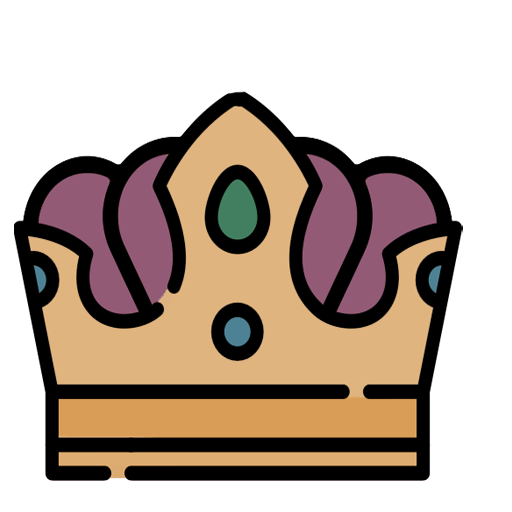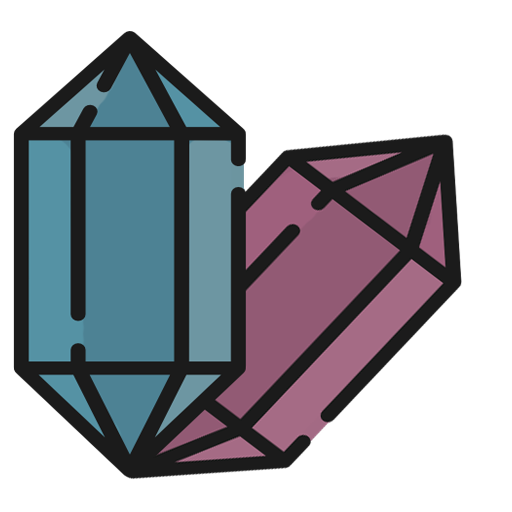The Hero's Call
Heroic Classes in Saleh'Alire
Saleh'Alire » Introduction ⭲ Professions
Most people born in Saleh'Alire may become something like a Candlemaker, a Healer, a Blacksmith, or a Cartwright- respectable but common professions which aid the world in their own small ways, through the provision of everyday services and the fulfilment of basic needs. Others more adventurous in spirit may instead become Archivists, Archaeologists, Exploreres, and Scientists- solid, respectable professions helping to expand the world's knowledge and range... But there are some Alirans who choose to specialize in something far bigger than even that- and, perhaps, far more nebulous in nature.
Aye, mother, I have my socks- and extra changes of small clothes. And yes, I got your last package forwarded to Rothshield. Admittedly, I like the hat you sent- but no one is going to take me seriously if I wear a bright orange knitted cap to slay dragons.— A young adventurer, in a letter home to his mother
Martial Paths
I fight because someone needs to- not because I enjoy killing people... But because people need protecting. And as long as there are people in the world who would slit another's throat for whatever grievances they have- or nobles who think it's fun to kill people over some stupid resource or another? There'll always be a need for protecting them.— General Oulara e'Albreht, Eris'kan soldier.
Click any box below to read more about the classes in this category.
▼ Barbarian ▼
Barbarians are quite rare, as the very rage that fuels them is itself uncommon... Still, they're highly revered among the martial types for their blind bravery in battle, and usually find easy professions as militiamen and mercenaries- cutting large, bloody swaths through whatever they're set against.
▼ Fighter ▼
Fighters are often militarymen and career soldiers- serving anywhere from a town, to a remote outpost, or even an entire kingdom. Some may even serve as personal guard for Nobles; they're often viewed as simple, but when it comes to their duties no one will go above and beyond like a Fighter will.
▼ Rogue ▼
Sneaky, quick, and agile, Rogues are frequently employed by Shadow Guilds, Kingdoms, Noble Houses, and others as spies and emissaries. Other Rogues make their mark as petty thieves, prowling solo through the cities; Rogues have many uses, mostly nepharious- but they'll always complete their job.
Natural Paths
I tell stories and sing songs, and the best material for both is history. So listen here, now, as I remind you of your history; listen as I weave metaphor and reality into a craft that will live in your heart longer than a list of names and dates ever will... For dates and names matter not in the grand scheme of the cosmos- only that you take these lessons and carry them with you until the end of time itself— Grand Archivist Lyra Carneiro, College of Lore
Click any box below to read more about the classes in this category.
▼ Ranger ▼
Practical and silent, Rangers combine the best of both the Druid and the Rogue- acting as silent watchers and protectors of the land to ensure it and its creatures remain safe; their work often goes unnoticed by others, but remains integral to keeping balance in the world.
▼ Druid ▼
Where Rangers are the balancers, Druids are the healers- curing the land and its creatures of blight and plague, corruption and polution, and countless more; their purpose lies in ensuring the world and those who reside within it remain healthy for generations to come.
▼ Bard ▼
Lorekeepers and Storytellers, Bards travel the world in search of stories- keeping Alliran history, law, and memory alive by singing it into songs, crafting it into plays, and so on; many often become Archivists later in life in order to ensure the stories continue well after their death.
Arcane Paths
If ever there were a worthy Academy in the world, it would be the College of the Five Stars- for it has, without a single doubt, produced the finest Wizards and shaped the minds of even the most graceless of Sorcerers; those who graduate from its halls can be considered among the choicest Arcanum.— Grand Arcanist Walaric Herenborg, College of the Five Stars Headmaster
Click any box below to read more about the classes in this category.
▼ Warlock ▼
Those who make pacts with extraplanars frequently become Warlocks: Arcanum with no real inherent power of their own, who are reliant on their Patron's blessing for what limited power they gain from their pact; typically seen as untrustworthy and nefarious, they usually find their home in Shadow Guilds in similar positions as Rogues.
▼ Sorcerer ▼
Sorcerers are those Arcanum who possess a natural excess of talent for the arcane, far surpassing the average person without any need for study. Their raw power frequently finds them working in respectable positions for various organizations who may not need the knowledge of a Wizard- but do need a bit more loyalty than a Warlock.
▼ Wizard ▼
Arcanum who have dedicated their life to learning about the Arcane through intense and rigorous study become Wizards; highly valued for their vast knowledge of all things Arcane, they're prized as Court Arcanists in kingdoms across Saleh'Alire- lending their knowledge and skills to some of the most powerful people.
Divine Paths
The Spirits themselves are the Teachers in the Temple- each imparting their lessons of eternal significance to whoever seeks them... The Priests are only their messengers. The Clerics, only their agents. Paladins, only their protectors; we all serve the Spirits in our unique capacities. But we are just that: Merely servants to a higher purpose.— Priestess Aaina Viswan, co-founder of the Temple of a Thousand Faces
Click any box below to read more about the classes in this category.
▼ Monk ▼
One of the rarest paths, Monks dedicate themselves wholly to understanding the mysticism of the Divine- with some even seeking to become one with the Weave to achieve Divinity themselves. Regardless of their aspirations their understanding of the cosmos bestows unique abilities and wisdom, often making them valuable spiritual teachers and leaders.
▼ Cleric ▼
Clerics are the loving, guiding hansd of the Divine- agents chosen to carry out their will among their many followers here on the material plane, and spread their messages among them; some seek to do this in the service of Temples, but many more are driven to travel across the land, spreading the message of their Divine Patron and fulfiling their purpose as they go.
▼ Paladin ▼
In times of severe religious strife and unrest, Holy Warriors may be called upon to serve a much bloodier purpose for their Temples and communities; these Paladins are the Champions of the Divine- picked by the Gods to defeat their spiritual enemies and protect their followers and holy spaces, as well as unflinchingly mete out Divine justice in their name.
Another Master
While the majority of the Divine Professions require the favor of a Divinity in order to possess their powers, because Planar Wardens are frequently similar in power and ability to the Material Divine, they're likewise capable of bestowng similar blessings on those who devote themselves to them. As a result, it is possible for an individual to become a Cleric or Paladin in service to a Planar Warden; this process requires similar vows to those taken by the Priests of Divine figures, but often have far more disasterous consequences if broken.Effects on the world
Whatever their status and circumstances at birth, those who take on such mantles frequently become more than they were- becomming extraordinary individuals and Folk Heroes who forever change the course of history when duty calls, and worshiped by the people for their deeds; the Castrillian Princess Fína Avelson nic Dhána was one such individual- renouncing her throne to found the Order of the Bloodhunters and wage war against the Undead plaguing her kingdom. The Dwarven Hero Ejnaar Krogh is another- beating back the Goliaths who enslaved his people, granting them freedom after centuries of oppression. Yet another is the Mother of Tolara- Imalda e'Yisonn- who ensured the survival of those shipwrecked on its coast.
Some call me a hero, but just as many call me a villain- and rightly so. I thought we were doing a service, removing the Druuma from beneath the oppressive hand of the Goliaths. And I was. But what we did to earn our rights... We freed countless by killing countless more; whatever freedom we gained, we took in kind.— Lost Page from the Diary of Ejnaar Krogh






















Comments
Author's Notes